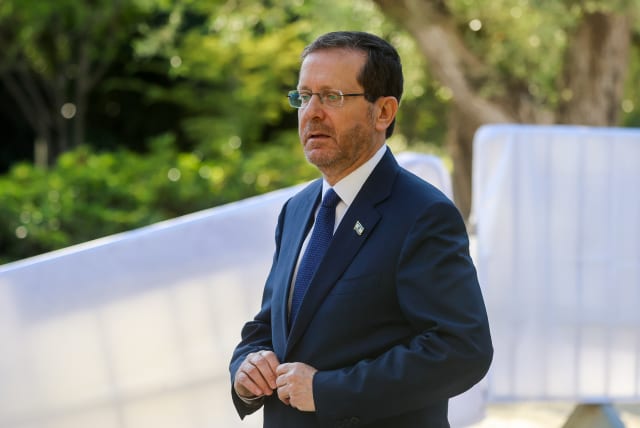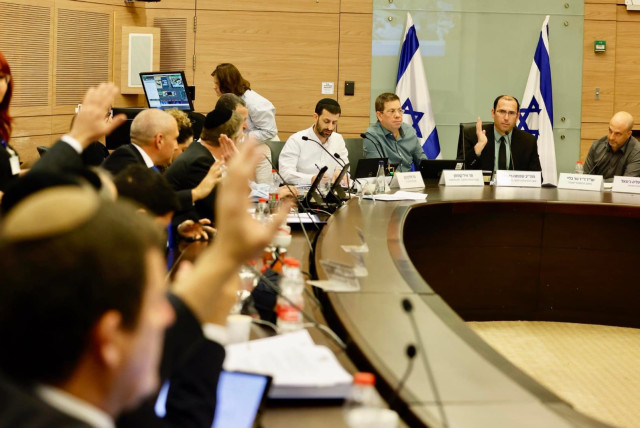Both sides must consider Herzog's judicial reform proposal - editorial

The proposal reportedly includes softening Knesset legislation, freezing reform of the Judicial Selection Committee, and requiring a seven out of nine majority on the committee for all appointments.
President Isaac Herzog has presented a new proposal on resolving the judicial reform crisis following intensive talks between the coalition and the opposition ahead of next week’s scheduled High Court hearing on the “reasonableness law.”
We urge the sides to seriously consider the proposal, which is a step in the right direction and in the interests of national reconciliation.
N12 reported on Monday that Prime Minister Benjamin Netanyahu has signaled his willingness to consider Herzog’s proposal, which, if true, represents a significant development.
What's in the proposal?
The proposal reportedly includes:
• Significantly softening the legislation passed by the Knesset limiting the High Court’s ability to review the “reasonableness” of government decisions.
• An 18-month freeze on reforming the Judicial Selection Committee and limiting the powers of ministerial legal counsels.
• A majority of seven of the nine members of the Judicial Selection Committee for all appointments, including the next president of the Supreme Court president.
In response to the media reports, the President’s Residence confirmed that Herzog had held talks with coalition and opposition leaders “with the goal of encouraging dialogue that would lead to broad agreements.”
Talking to members of the Jewish community in Austria, where he paid an official visit this week, the president said he had urged leaders of the coalition and opposition “to show responsibility.”
But both the coalition, including Justice Minister Yariv Levin and the Likud, and the opposition, led by Yair Lapid and Benny Gantz, were quick to deny consent to the president’s proposal. “There has been no agreement,” the Likud declared, while Levin went so far as saying that “it is impossible to agree to the new compromise proposal.”
“[It] does not change the basic thing that is required – changing the committee for selecting judges,” Levin, the architect of the overhaul plan, told Kol Berama radio station.
“I am not ready to compromise on anything, [but] I am ready to reach agreements,” Gantz told a conference in Jerusalem. Leaders of the judicial reform protests said that opposition politicians “lack a mandate to compromise on democratic principles.”
National Security Minister Itamar Ben-Gvir said his Otzma Yehudit MKs said that they “will vote against any surrender which comes up for a vote.” And Finance Minister Bezalel Smotrich’s Religious Zionism party said it would not consider “a surrender by the majority to an extreme minority willing to burn everything down.”
According to Walla News, Netanyahu would like Herzog to publicize the terms of the proposal ahead of his planned meeting with US President Joe Biden on the sidelines of the United Nations later this month, because this would set a favorable tone for the meeting.
The timing of the publication of the proposal is key. Next week, on September 12, the High Court is set to hear petitions against the law to change the reasonableness standard, which passed at the end of July, and the opposition is concerned that it may be used as a ploy by the government.
Following the negative responses, Herzog issued yet another statement, urging the sides to reconsider.
“There are moments in crises of this sort when leadership is required to take advantage of the rare opportunity to reach out and come to agreements, and this is one of those moments,” he said. “We are just before Rosh Hashanah, before the High Holy Days, and for nine months we have been in a deep crisis that dramatically affects our lives, significantly affects our security, affects our economy, affects our society, affects our human behavior. Enough! I call on the leaders to show responsibility, to look reality in the eye, to reach out, to make an effort, not to postpone, to come together to make every effort and to try to reach a broad agreement.”
The president is right. Even if his proposal is not perfect and gaps between the sides remain, this is the time for our political leaders and their opponents to do genuine heshbon nefesh (soul-searching) and strike a deal – if possible, before Rosh Hashanah.
Jerusalem Post Store
`; document.getElementById("linkPremium").innerHTML = cont; var divWithLink = document.getElementById("premium-link"); if (divWithLink !== null && divWithLink !== 'undefined') { divWithLink.style.border = "solid 1px #cb0f3e"; divWithLink.style.textAlign = "center"; divWithLink.style.marginBottom = "15px"; divWithLink.style.marginTop = "15px"; divWithLink.style.width = "100%"; divWithLink.style.backgroundColor = "#122952"; divWithLink.style.color = "#ffffff"; divWithLink.style.lineHeight = "1.5"; } } (function (v, i) { });

